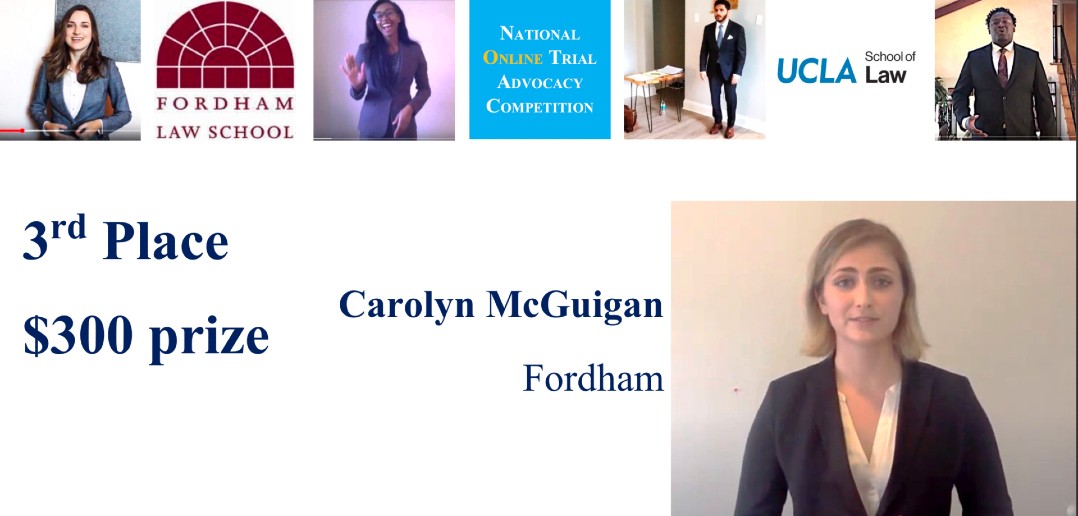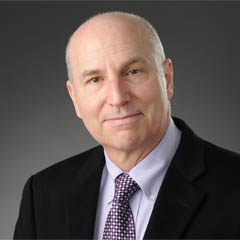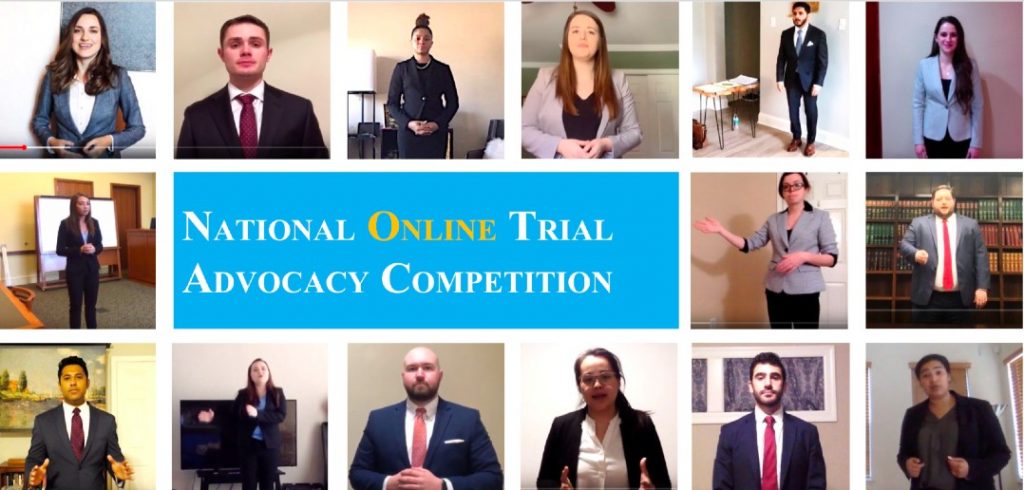As law schools around the country canceled their in-person events in response to the coronavirus pandemic, many students who had been preparing for trial advocacy competitions saw their hard work at risk of going to waste. Adam Shlahet, director of Fordham Law School’s Brendan Moore Trial Advocacy Program (ranked ninth in the country by U.S. News and World Report two years running), said that six teams had been prepping for competitions that were abruptly canceled, leaving the 24 students on those teams frustrated and disappointed.
Fordham and UCLA Launch National Competition
Together with Justin Bernstein, the director of UCLA’s A. Barry Cappello Program in Trial Advocacy, Shlahet organized the first-ever National Online Trial Advocacy Competition. In lieu of typical in-person proceedings, each student was required to submit a video of an opening statement. “We had modest expectations,” Shlahet admits, but the competition received video submissions from 170 students from 67 different law schools nationwide. Nearly 400 judges signed up to adjudicate the virtual competition. Eighteen Fordham students participated in the competition, which based its case on the celebrity college admissions scandal. Of the 170 entrants, 30 were selected to advance to the semifinals. The top 10 finalists each had clips of their statements played during a Zoom session held to announce and celebrate the winners. The top five received cash prizes, including Fordham student Carolyn McGuigan ’21, who won third place.

“We filled a real void for the law students who are disappointed and frustrated because their competitions were canceled,” said Shlahet. The virtual nationwide competition was so well-received that he believes these kinds of competitions will continue even after the coronavirus outbreak is over. “There was so much buy-in from competitors and judges that I am sure we will run similar programs in the future.”
Tendy Competition Goes Virtual
For the past ten years, every April, Fordham has hosted an intraschool trial advocacy competition, the William M. Tendy Federal Criminal Trial Advocacy Competition (named in honor of Bill Tendy ’49) at the U.S. District Court for the Southern District of New York. Due to the timing of the event amid the pandemic, Shlahet, Professor James Kainen, and the two student Tendy editors, Arielle Burstein ’20 and Raina Duggirala ’20, opted to bring the competition online.

Naturally, moving the competition online posed several challenges. The presentation of evidence, for example, is a very tangible element, difficult to adapt in a virtual setting. “Usually, when you’re handling evidence, you show it to the opposing counsel, you approach the witness and hand them something to look at before asking them questions about it,” Shlahet said. “That all has to be modified for online competitions. We needed to be creative, so we used Zoom’s screen-sharing function to share the exhibit.”
Eight teams participated, with Fordham Law students acting as witnesses and Moore board members (students graduating in 2020) serving as bailiffs. The competition also had an all-star panel of former U.S. Attorneys for the Southern District of New York (SDNY) and sitting and former federal judges, including Judge Cathy Seibel, Mary Jo White, Robert Fiske, Judge Barbara Jones, Judge Frank Maas, Charles Carberry, Benito Romano, Sheila Tendy, Krystyn Tendy, and Travis Atkinson.
Typically, as the Tendy Competition is held in New York, only local program alumni are able to attend and participate. This year, however, Moore alumni who have moved far afield were able to participate virtually in the proceedings. “During the semifinals, one of the presiding judges was one of our alumni, Ramon Pagan ’00, a circuit court judge out in Oregon,” Shlahet explained. “Another alumna, Leila Morgan ’04, who is a longtime federal defender in San Diego, was able to preside over a semifinal round. It was this really nice silver lining to be able to involve people on the west coast, who would never have been able to be involved otherwise.”
Shlahet commended the Tendy participants, noting, “It’s already a simulation in that it’s a mock trial. If all the people weren’t engaged in trying this case like a real trial, it would feel like a charade. But everyone was 100 percent committed, and it showed in the quality of their performance.”
Burstein agreed, observing, “The judges and the other people watching the trials said, tech issues aside, there were moments they forgot it was on Zoom and not a real trial.”
“The credit that Professor Shlahet and the student organizers and participants bring to Fordham as we showcase the work of our Brendan Moore Advocacy Center to the distinguished Tendy Competition judges is amazing,” said Professor James Kainen, Fordham Law’s Brendan Moore Chair in Advocacy.
The panelists were effusive about the virtual edition of the annual Tendy Competition.

“I actually liked the technology as I found myself more engaged with the trial,” observed Barbara Jones, a former U.S. District Judge for the SDNY and First Assistant District Attorney of NY County. “In all of my years judging Moot Courts I have never seen better Advocates. Everyone performed like a pro. And that is a lot of years and a lot of very talented students. Bill Tendy would have been enormously proud of them.”
“The students performed extremely well, as all the judges commented,” added Robert Fiske, Fordham Stein Prize winner, Davis Polk Senior Partner, and U.S. Attorney for the SDNY and Special Prosecutor. “But, great credit should also go to those who produced the online capability and set up as well as those who wrote the case that was imaginative and very well balanced.”
Online Competitions Are a Harbinger of the Future
Part of what made the online national and Tendy competitions so successful is that it turns out that many elements of competent trial advocacy are surprisingly translatable to an online format.
“The foundation of the advocacy—asking smart questions, writing persuasive opening statements, and making creative arguments—all of that is still there, even though you’re sitting in front of a laptop screen,” Shlahet explained.
While conducting competitions online brings with it a new host of issues, the skills that the students learn—including awareness of camera angles and lighting—might serve them well as social distancing shapes the future of the legal field. “In the current climate and in the future, there will be legal proceedings, hearings, and maybe even trials that happen entirely online,” Shlahet projected. “So, we’re training our students to be ready for that.”

